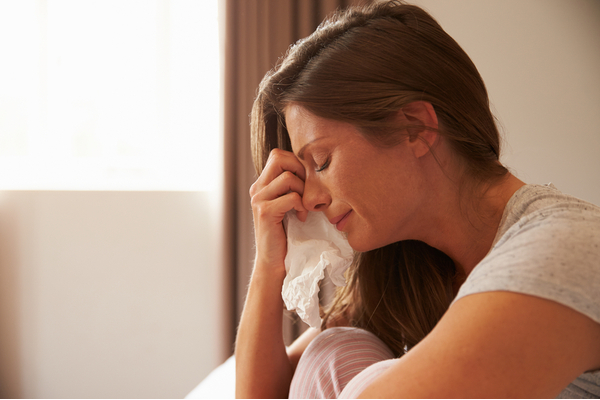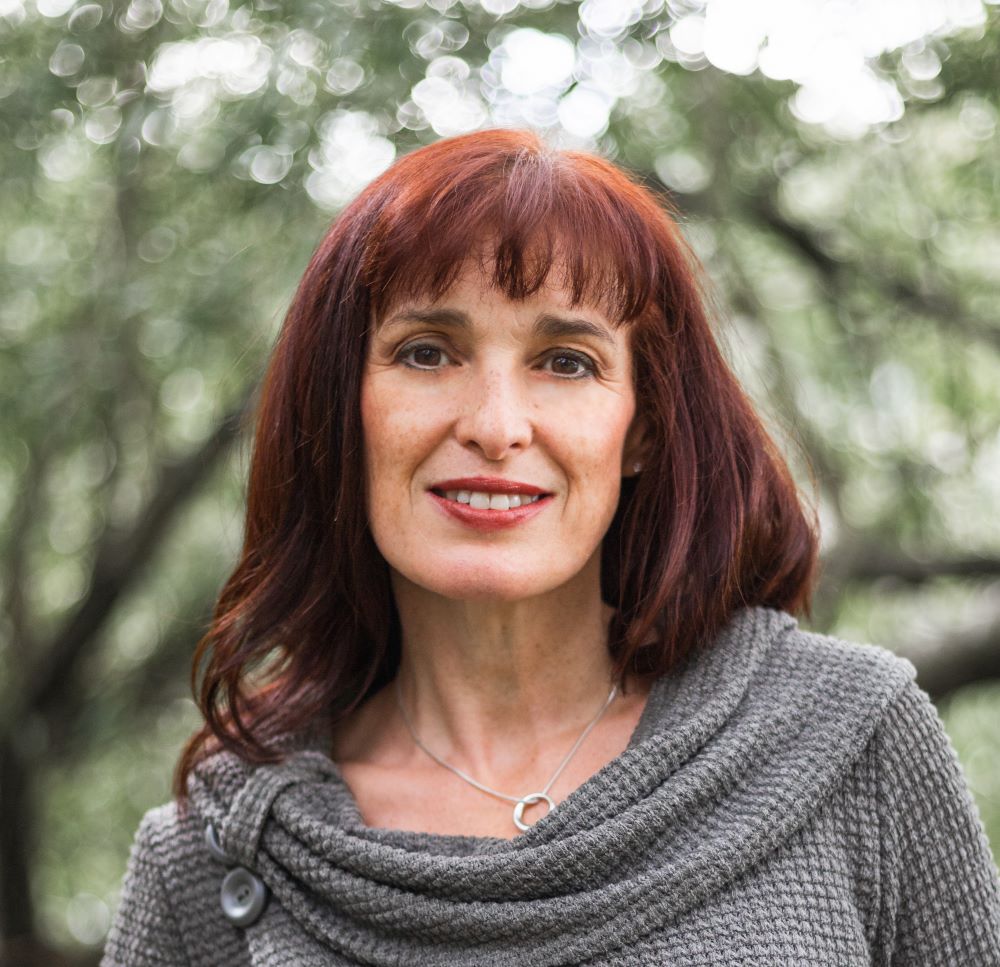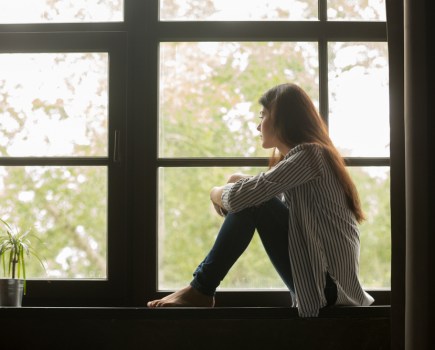With so many restrictions in place surrounding hospital visits and funerals, grieving the loss of a loved one during COVID can feel impossible. Life coach and carer Julia Sinclair-Brown is here to help…
Click here to order the latest issue of Top Santé magazine!
As if grief wasn’t enough, dealing with it amidst COVID-19 can raise a mixed bag of emotions for many. Whether your grief feels intensified during the pandemic or has become easier for you as the world pauses too, this is understandable as there is no right or wrong way to grieve under normal circumstances – and even less so now.
It can be reassuring to know that the emotions associated with grief can be hugely fluctuating, which, at times, can feel overwhelming and even confusing, and that may now be amplified further alongside the uncertainty of what may unfold over the next few months.
Self compassion is crucial
For this reason, self-compassion is especially important and not a time to judge ourselves (or listen to others’ judgements on how we should be feeling and behaving). Instead, the best we can do is to allow ourselves to feel the emotions that grief triggers in us,. What we need most of all is to have our pain witnessed for what it is, and to simply be held and supported within it.
From my own personal perspective, my first response was a strong feeling of relief that others are echoing, when I lost my father at the end of last year and feeling that he passed away ‘just in time’. I recognised how grateful I was to be with him at the end of his life.
For others, I understand that right now it might be different, particularly if those bereaved are left alone to self-isolate during such unpredictable times without their loved ones by their side.
It’s understandable that this may even bring up feelings of anger or resentment that their loved one left them too soon and to cope alone, without all the normal support that would have normally been available.
Feeling anxious during grief
And for others still, grief can provoke a heightened state of anxiety – a normal response to grief – after feeling that their world has spun out of control, coupled with the anxiety of the whole world also feeling out of control.
This may invoke a sense of panic of how to cope through this period of lockdown, alongside a genuine fear of potentially losing other loved ones. Under normal circumstances, a comforting hug or touch of the hand can be a powerful way to reassure and offer support without using words, which can make it especially difficult for those living alone.
And of course there is now the added grief of not being able to attend the funeral of a loved one, which can be extremely distressing, not least because it deprives families of the last opportunity to say goodbye.
To cope with grief during these exceptionally difficult circumstances, I would like to share with you some tips and advice which include:
1) Request the funeral is live-streamed or recorded.
This would give you an opportunity to watch it live or after it has taken place. You could create your own memorial service at home at the same time of the funeral so that you still feel a part of it.
2) Ask for support.
It may be a little more difficult now because of physical limitations and others may be struggling to find their own way to manage too at this time but most people would still want to be able to support you. Keeping connected with others, whether that’s friends, family or support groups online is important for your wellbeing – social isolation does not mean you need to grieve alone.
3) Keep a journal.
This can offer a great alternative to therapy and a safe and private way to express how you feel. If words don’t come easily to you or you would prefer another creative outlet, you might create a collage or photo book of memories.
4) Learn how to control anxiety.
Try and limit the amount of news you are absorbing, practise some deep breathing techniques (you can find plenty of examples online), listen to music or distract yourself with light-hearted TV or films. Iif your anxiety becomes overwhelming, try reciting the words of a song you know well, practise your times-tables for example, or find something else that works for you and keep doing it until the feeling of overwhelm passes.
5) Identify what helps you most.
Make two columns and list what helps you and what doesn’t, keep it close to hand and remind yourself daily of your own self-support tools. Your list can be as basic as you need it to be, for example, taking a shower each day. Keep adding to your list as you discover what works best for you.
6) Eat well and look after yourself.
Try to ensure you are getting sufficient rest plus a daily dose of fresh air ideally with some exercise. Keep hydrated and keep your alcohol levels to a minimum. Eat at least small portions of nutritious food. Take extra vitamins, especially Vitamin C, Vitamin D and Zinc to boost your immunity (generally lowered with grief). Don’t take on more than you can manage, especially if you are still working.
7) Talk to a professional.
If you can access it, gain support through speaking with a trained individual who can help you through your grief. Sometimes our friends and family can be limited with knowing what to say and how to support us. A therapist would allow you to be open and honest about how you feel and may be better placed to help you with coping strategies.
Finally, it is heartening to see how communities are pulling together, so if you need to reach out for help, please do tap into the support available, either through the new NHS GoodSam scheme for those who are self-isolated, or a local group in your area. Further support is available through the Cruse helpline on 0808 808 1677 or the Samaritans on 116 123 if you need to talk to someone about how you are feeling.








